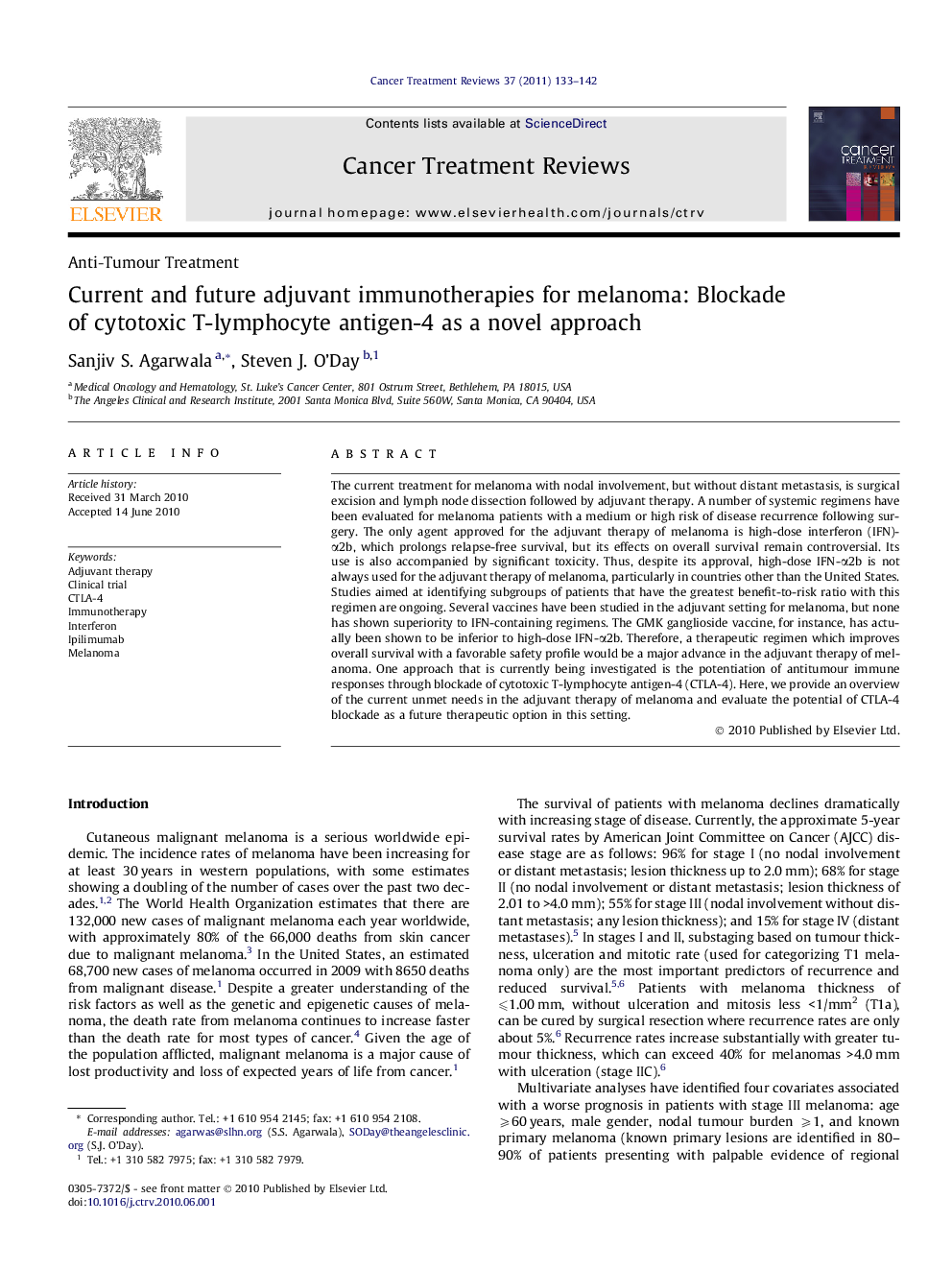| Article ID | Journal | Published Year | Pages | File Type |
|---|---|---|---|---|
| 3980527 | Cancer Treatment Reviews | 2011 | 10 Pages |
The current treatment for melanoma with nodal involvement, but without distant metastasis, is surgical excision and lymph node dissection followed by adjuvant therapy. A number of systemic regimens have been evaluated for melanoma patients with a medium or high risk of disease recurrence following surgery. The only agent approved for the adjuvant therapy of melanoma is high-dose interferon (IFN)-α2b, which prolongs relapse-free survival, but its effects on overall survival remain controversial. Its use is also accompanied by significant toxicity. Thus, despite its approval, high-dose IFN-α2b is not always used for the adjuvant therapy of melanoma, particularly in countries other than the United States. Studies aimed at identifying subgroups of patients that have the greatest benefit-to-risk ratio with this regimen are ongoing. Several vaccines have been studied in the adjuvant setting for melanoma, but none has shown superiority to IFN-containing regimens. The GMK ganglioside vaccine, for instance, has actually been shown to be inferior to high-dose IFN-α2b. Therefore, a therapeutic regimen which improves overall survival with a favorable safety profile would be a major advance in the adjuvant therapy of melanoma. One approach that is currently being investigated is the potentiation of antitumour immune responses through blockade of cytotoxic T-lymphocyte antigen-4 (CTLA-4). Here, we provide an overview of the current unmet needs in the adjuvant therapy of melanoma and evaluate the potential of CTLA-4 blockade as a future therapeutic option in this setting.
